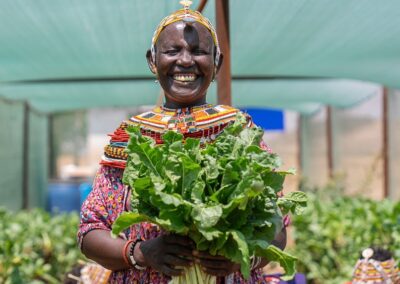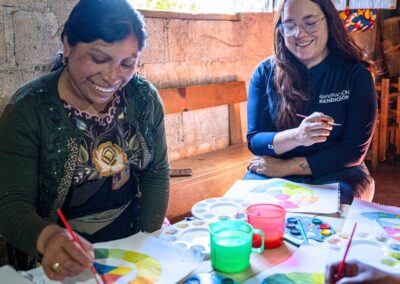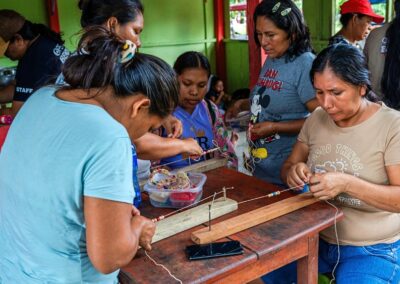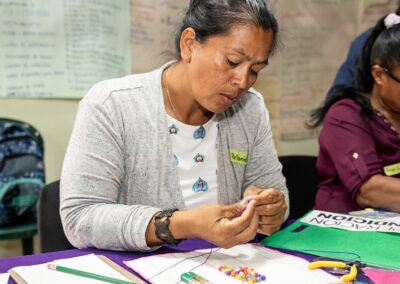Vocational Training Frequently Asked Questions
Vocational Training Frequently Asked Questions
Across the globe, families are struggling to break free from the grip of poverty. But thanks to friends like you, Operation Blessing is equipping people with the skills they need to build brighter futures through vocational training and small business opportunities. From Peru to Haiti, these life-changing programs are empowering individuals to provide for their families with dignity and hope.
What is vocational training?
Vocational training provides practical education in specific trades and skills, preparing individuals for employment in industries such as healthcare, construction, agriculture, and business.
How does vocational training help break the cycle of poverty?
By equipping individuals with skills that lead to stable jobs, vocational training enables families to achieve financial independence and reduce reliance on outside assistance.
Who benefits the most from vocational training?
Vocational training is especially beneficial for individuals in underserved communities, those without access to higher education, and people seeking to gain new skills for better job opportunities.
What types of skills are taught in vocational training programs?
Programs cover a wide range of skills, including carpentry, sewing, agriculture, plumbing, electrical work, cosmetology, and healthcare training.
How does vocational training impact local communities?
When individuals gain skills and start businesses or secure employment, they contribute to economic growth, create job opportunities, and strengthen their communities.
Why is vocational training important for economic development?
Vocational training helps create a skilled workforce, increasing productivity and innovation while improving the economic stability of entire regions.
How does vocational training support women’s empowerment?
What is the difference between vocational training and higher education?
Vocational training focuses on practical, job-specific skills, while higher education provides broader academic knowledge and theory-based learning.
What are the benefits of vocational training for young people?
Vocational training gives young people the opportunity to develop marketable skills, gain work experience, and secure employment early in their careers.
How can vocational training improve financial stability?
By equipping individuals with the skills needed for employment or entrepreneurship, vocational training helps families generate consistent income and build financial security.
Why is hands-on experience important in vocational training?
Practical training allows individuals to develop real-world skills, increasing their confidence and ability to perform tasks effectively in a work environment.
How does vocational training contribute to social mobility?
By providing education and skill development, vocational training allows individuals to improve their economic status and create better opportunities for future generations.
How does vocational training help people adapt to changing job markets?
Training programs teach adaptable skills that allow workers to transition into new industries and stay competitive in the workforce.
What industries benefit the most from vocational training programs?
Industries such as construction, healthcare, agriculture, and skilled trades benefit greatly from a well-trained workforce developed through vocational education.
How does vocational training reduce unemployment?
By preparing individuals for specific careers, vocational training bridges the gap between job seekers and available employment opportunities.
What is the role of mentorship in vocational training?
How does vocational training encourage entrepreneurship?
Many programs teach business and financial skills, enabling individuals to start and sustain their own businesses.
How can vocational training help people recovering from economic hardship?
By learning new skills, individuals who have faced economic difficulties can rebuild their careers and secure stable employment.
What is the importance of vocational training in rural areas?
Vocational training brings valuable skills to remote communities, creating local employment opportunities and improving access to essential services.
How does vocational training improve overall quality of life?
With stable employment, individuals can afford better healthcare, education, and living conditions, leading to healthier and more secure families.
How does vocational training support long-term sustainability?
By providing skills that lead to stable jobs and businesses, vocational training promotes economic resilience and self-sufficiency in communities.
How can vocational training be expanded to reach more people?
Through increased funding, partnerships, and community-based initiatives, vocational training can reach more individuals and create greater impact.
The Importance of Vocational Training
Vocational training is a key tool in helping individuals develop essential skills that lead to long-term employment and economic stability. By offering specialized education in various trades, vocational training programs create opportunities for people to earn sustainable incomes, support their families, and contribute to their communities.
Peru: Honoring Heritage Through Handicrafts
In the communities of Manacamiri and Padre Cocha, artisans are learning new crafting techniques that blend traditional methods with modern skills. Through hands-on training, access to tools, and registration as formal vendors, these talented individuals can preserve their cultural heritage while earning a sustainable income. Thanks to you, these hardworking artisans are breaking free from the cycle of poverty through microenterprise.
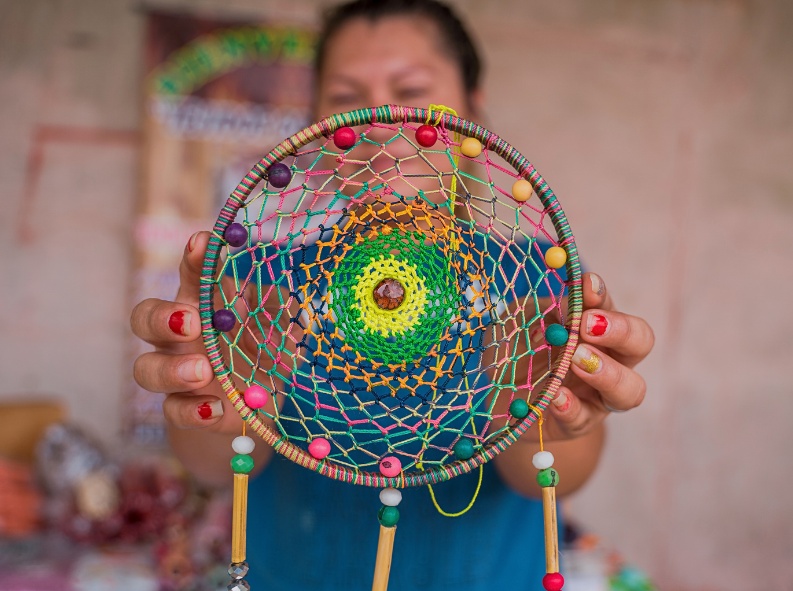
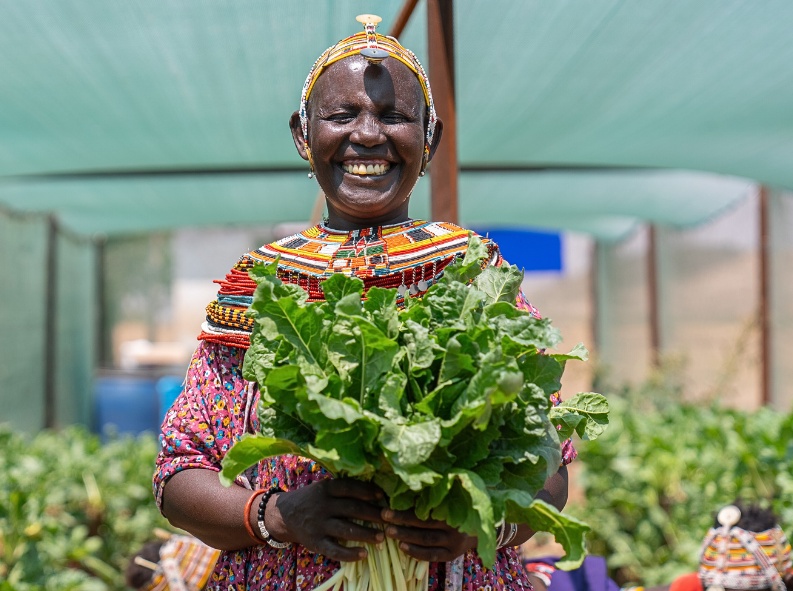
Kenya: Growing Hope Through Agriculture
For many families in Kenya, hunger is a daily struggle. But with your support, Operation Blessing is providing agricultural training that offers a path to self-sufficiency. Families receive farmland, tools, and expert guidance on techniques like sack gardening—allowing them to grow food for their tables and sell surplus produce for income. This powerful combination of education and resources is creating long-term solutions for hunger relief.
Guatemala: Lifting Families Through Small Business Training
In Uke, Nigeria, 33 widows found hope and opportunity through Operation Blessing’s bean farming program. Equipped with tools and training, these determined women harvested nearly 10,000 pounds of beans—earning much-needed income to support their families. For Rose, this meant paying for her twin sons’ senior exams, a step toward a brighter future. Overflowing with gratitude, the widows blessed Operation Blessing and our generous supporters. This initiative not only provided immediate relief but also echoed our broader mission of uplifting widows worldwide, including in Honduras.
Honduras: A Fresh Start for Women in Business
In Bawamataluo, Indonesia, chili farmers are seeing their livelihoods flourish thanks to Operation Blessing. With high-quality seedlings, modern farming equipment, and expert training, they’ve improved their crops and incomes. Farmers like Mr. Radianus are now earning more and planning to expand, proving that with the right support, small farms can thrive and transform lives.
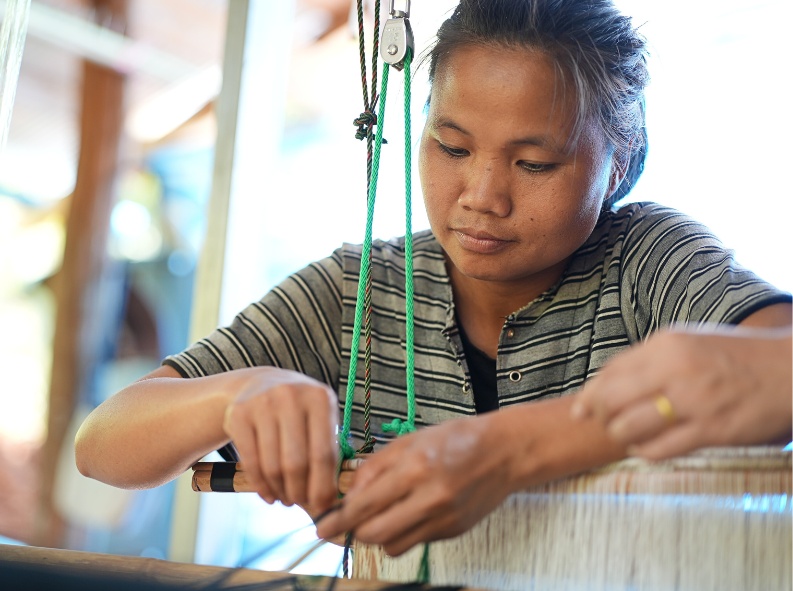
Philippines: Building Brighter Futures with Construction Skills
Since its first graduating class in 2019, Operation Blessing’s Vocational School in the Philippines has been transforming lives through hands-on training in carpentry, masonry, electrical work, and plumbing. This year, graduates are finding jobs and launching businesses, equipped with skills that not only support their families but also contribute to rebuilding communities.
Help Provide Small Business Opportunities
Because of compassionate friends like you, Operation Blessing is creating life-changing opportunities for families across the world. Together, we can empower even more individuals with the skills they need to earn an income and build a better future.
Will you join us in this mission? We invite you to join us by partnering with Operation Blessing today to provide vocational training and small business opportunities.
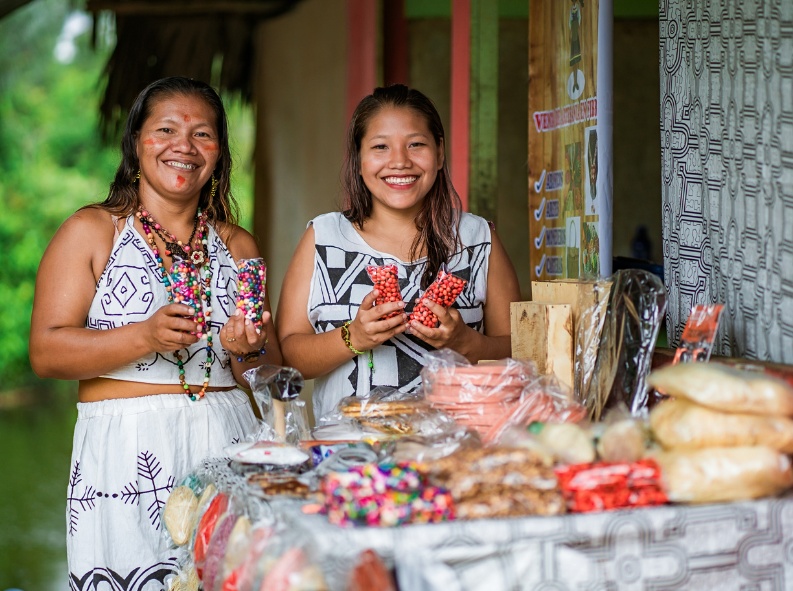
Drew Friedrich, President
